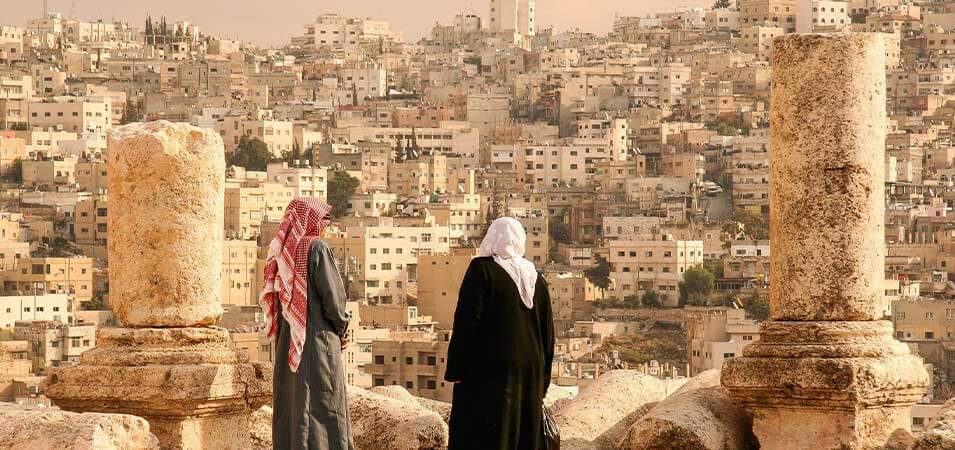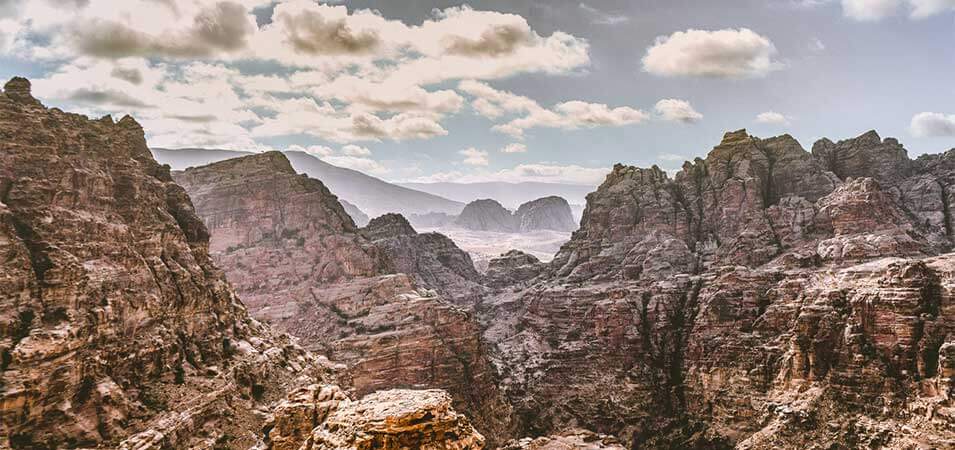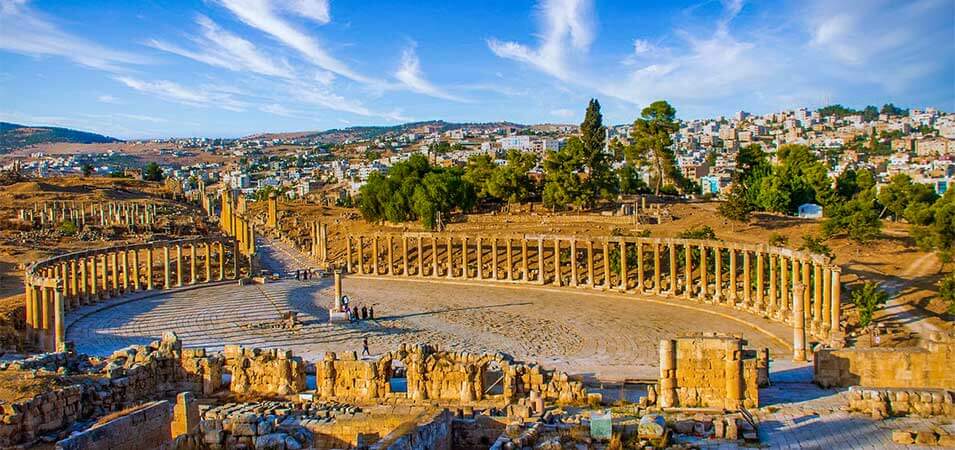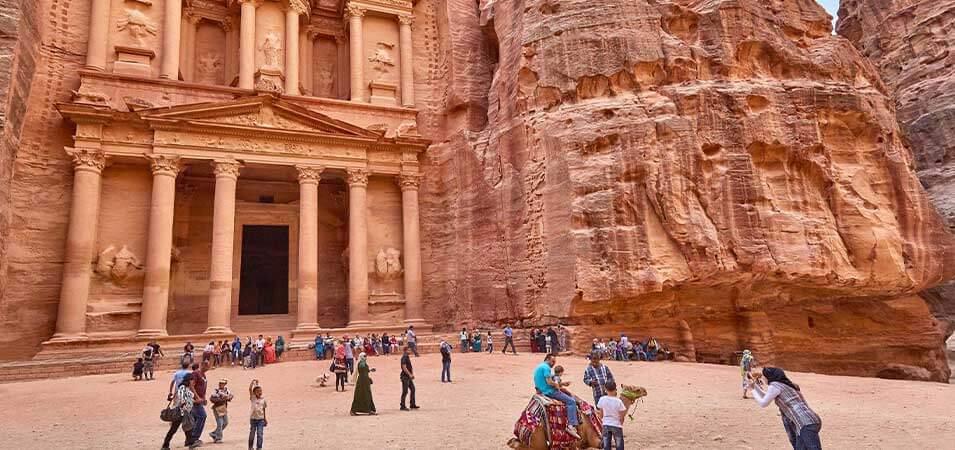Jordan, located in the heart of the Middle East, is known for its rich traditions, vibrant culture, and historical wonders. Before embarking on a journey to this fascinating destination, you must familiarize yourself with the local customs, etiquette, and clothing preferences. In this article, we will explore the traditions and culture and offer valuable clothing tips to ensure you have a memorable and respectful experience in Jordan.
Understanding Jordanian Traditions and Culture

The Importance of Hospitality
When visiting Jordan, you will quickly notice the warm and welcoming nature of the Jordanian people. Hospitality is deeply ingrained in their culture, and guests are treated with great respect and generosity. Please expect to be invited for tea or meals by locals, as it is a way to show their hospitality and make you feel at home.
Greetings and Social Etiquette
In Jordan, greeting others with a warm handshake and maintaining direct eye contact is customary. When meeting someone for the first time, it is polite to use their full name and include a friendly inquiry about their well-being. The exchange of pleasantries is highly valued, so take the time to engage in conversations and show genuine interest in the lives of the locals.
Jordanian Cuisine and Dining Customs
Jordanian cuisine is a delightful blend of Middle Eastern flavors, characterized by dishes like Mansaf (a traditional lamb and rice dish), Falafel, and Mezze (a selection of small appetizers). When invited to a Jordanian home for a meal, it is customary to accept the offer and remove your shoes before entering. Remember to use your right hand for eating, as the left hand is considered unclean.
Dress Code and Modesty
Jordan is a predominantly Muslim country, and modesty in dress is highly valued. Both men and women are expected to dress conservatively, particularly when visiting religious sites or rural areas. Women should consider wearing loose-fitting clothing that covers their shoulders and knees. Men should avoid wearing shorts to respect local customs and traditions.

Exploring Jordanian Festivals and Celebrations
Jordanian Independence Day
Jordanian Independence Day, celebrated on May 25th, is a significant event in the country’s history. It commemorates the day Jordan gained its independence from British colonial rule. Festivities include parades, fireworks, and cultural performances, giving visitors a unique opportunity to witness Jordanian national pride.
Eid Al-Fitr and Eid Al-Adha
Eid Al-Fitr and Eid Al-Adha are two major religious festivals Muslims celebrate. During these festivals, Jordanians come together with family and friends to enjoy feasts, exchange gifts, and engage in charitable activities. It’s a great time to experience the local traditions and immerse yourself in the festive atmosphere.
Jerash Festival
The Jerash Festival is an annual cultural event held in the ancient city of Jerash. It showcases Jordanian music, dance, and theater performances, attracting locals and international visitors. The festival provides a fantastic opportunity to witness the richness of Jordanian arts and culture.

Discovering Historical Sites and Landmarks in Jordan
The Ancient City of Petra
Petra, often called the “Rose City,” is a UNESCO World Heritage Site and one of Jordan’s most iconic attractions. Carved into the rose-red cliffs, this ancient Nabatean city offers breathtaking architectural wonders, such as the Treasury and the Monastery. Exploring Petra is like stepping back in time and discovering a lost civilization.
Wadi Rum – The Valley of the Moon
Wadi Rum, the Valley of the Moon, is a captivating desert landscape in southern Jordan. Its unique rock formations, vast dunes, and mesmerizing sunsets make it a must-visit destination for nature lovers and adventure enthusiasts. Take a jeep tour or go hiking to appreciate Wadi Rum’s stunning beauty fully.

Amman – The Capital City
Amman, the capital city of Jordan, is a vibrant and bustling metropolis with a rich history and modern amenities. The city offers a mix of ancient ruins, such as the Roman Theater, and contemporary attractions, like art galleries, restaurants, and shopping centers. Exploring Amman allows you to experience the vibrant pulse of Jordanian urban life.
Essential Clothing Tips for Visitors to Jordan
Respect for Local Customs
To show respect for local customs and traditions, it’s essential to dress modestly throughout your visit to Jordan. Avoid clothing that is revealing or excessively tight. Opt for loose-fitting garments that cover your shoulders and knees, particularly when visiting religious sites or rural areas.
Modesty in Dressing
Both men and women should adhere to modesty in their dress. Women can wear long skirts or loose-fitting pants paired with tops that cover their shoulders. Men should avoid wearing sleeveless shirts and shorts in public areas. It is also advisable to carry a scarf or shawl that can be used to cover your head or shoulders when necessary.
Suitable Footwear
Comfortable footwear is essential when exploring Jordan’s historical sites and natural wonders. Opt for closed-toe shoes or sandals that provide adequate support and protection. Avoid high heels or open-toe shoes, as they may not be suitable for certain terrains or cultural settings.
Weather Considerations
Jordan experiences diverse weather conditions, so it’s important to pack accordingly. Summers can be hot and dry, while winters can be chilly, especially in the desert regions. Layered clothing is recommended to adapt to temperature fluctuations throughout the day. Remember to pack a hat, sunscreen, and sunglasses to protect yourself from the sun’s rays.

FAQs
Is it safe to visit Jordan?
Yes, Jordan is generally considered a safe country to visit. However, like any travel destination, it’s advisable to exercise caution and follow local guidelines and recommendations for a safe and enjoyable experience.
What is the official language of Jordan?
The official language of Jordan is Arabic. However, English is widely spoken, especially in tourist areas, hotels, and restaurants.
Are credit cards accepted in Jordan?
Credit cards are widely accepted in larger establishments, hotels, and restaurants. However, carrying some cash is always a good idea, especially when visiting smaller shops or local markets.
Can I visit religious sites in Jordan?
Yes, you can visit religious sites in Jordan. However, it’s essential to dress modestly and adhere to specific guidelines or restrictions at each location.
Are there any specific cultural customs I should know in Jordan?
Jordanians appreciate respectful behavior and adherence to their customs. It’s polite to accept offers of tea or meals, remove your shoes when entering homes, and show general respect for elders and religious traditions.
Conclusion
Jordan’s traditions, culture, and historical wonders offer visitors an enriching and captivating experience. You can ensure a memorable and respectful journey by familiarizing yourself with Jordanian customs, dressing appropriately, and respecting local traditions. Embrace the warmth and hospitality of the Jordanian people, savor the delicious cuisine, and explore the ancient wonders that make this country genuinely remarkable.
